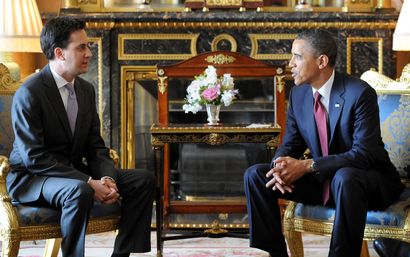Warning: If you want to learn some extremely powerful interview techniques used by the most influencive and successful business people of our time, then continue reading.
A lot of people struggle majorly with interviews. Part of the problem is the sheer amount of poor information out there on how to do well in the interview. In fact, most of the commonly taught tactics are actually drastically hurting your chances.
First, it would be helpful to know if you normally come off introverted or extroverted on initial meetings. You should know this, but if not, ask 5 random people that don’t know you very well. Don’t ask your long time best friend, as they know you too well. You want to ask people that have only met you for about 20 minutes.
Strategy for Introverts
I would say that I’m an omnivert, which is a combination of introvert and extrovert. That leaves me in a great position to understand the mindset of both introverts and extroverts.
For introverts – the trick is to over deliver and step outside of your comfort zone. Your comfort zone as an introvert is somewhat conservative compared to extroverts. Traditionally extroverts connect faster with people, so you want to portray a little bit of extrovert behavior when interviewing.
Here’s how it works. An introvert that’s acting excited and over the top, often time comes off like a mild extrovert! It may seem over the top to you, but to others it won’t be. So the trick here is to act a little excited, a little over the top and sell a little more than you may normally. You will likely come off like a mild extrovert, even though you will feel like you are being seriously ridiculous.
Strategy for Extroverts
People also connect strongly with people that are like them. If you are too over the top as an extrovert you might be “weird” to them. They might not know what it is and mark you down as “not a good fit.” In reality, what likely is happening is that you are too over the top and not like them. If your interviewer is introverted, calm and passive behavior will likely work best.
If you are unsure where you fit in on the introvert and extrovert scale compared to your interviewer, the easier trick to act exactly like your interviewer. This is called mirroring.
Now we’re starting to get into some real ninja tactics.
Mirroring your Interviewer
 Mirroring is a technique that has been around for ages. This applies to mostly body language but also behavior and energy level. For example, if your interviewer has their arms at ease, legs at shoulder width and an open energy to them – you should do the same. You don’t want to be sitting there with your legs and arms crossed, this will come off as closed off – and would not be mirroring your interviewer.
Mirroring is a technique that has been around for ages. This applies to mostly body language but also behavior and energy level. For example, if your interviewer has their arms at ease, legs at shoulder width and an open energy to them – you should do the same. You don’t want to be sitting there with your legs and arms crossed, this will come off as closed off – and would not be mirroring your interviewer.
Mirroring can apply to language, body language, gestures, facial expressions, tone and more. If your interviewer is very expressive with their face, you could also be expressive with your face.
This also applies big time to overall posture and body language. When you were a kid you probably played the game where you do or say exactly what the other person is doing, like a copy cat. You can use this in an interview too! It’s like magic and you will connect much more with your interviewer.
Don’t be ridiculous with it though, if you scratch your nose every single time the interviewer does, and literally copy every single movement, then they are going to think you are up to something. The key here is doing this with moderation.
There is a more advanced technique to incorporate with this called anchoring which I will get into as well later.
If you want to see some moderate mirroring in action check, without it being too obvious, check out this podcast video interview with Tony Robbins and Lewis Howes. Watch the whole thing and see if you can spot it.
Energetically invest in the interview
Some people think some of these tactics are evil or sneaky. But if you follow these tactics and energetically invest into the interview, then you will legitimately be more physically present and will connect more with the interviewer.
These are all tactics designed to get you to connect and be more in the moment with that interviewer, and vise versa. After a while, you should stop thinking about copying behavior and hopefully you will organically be doing it.
Do you act like your partner or parents?
Often times we act like our partner and parents, or anyone really close to us. Thats because we like them and we want to be like them! It’s extremely subconscious but we all do it to some extent with our partner or parents.
Your speech patterns, body language and even facial expressions will have similarities and you’ll learn some of those behaviors from your partner and parent figures.
This is also true with parents! You may notice that you have some similar behaviors as your parent. You learned many things from them and to an extent respect and like them enough to subconsciously copy their behaviors.
In fact, this is how we learn how to speak!
Think back to the very beginning of a human learning how to speak. We sound out and try to copy words that our parents, teachers and others are saying.
Without having someone to copy, it would be very hard to learn to speak English, or any language for that matter.
So don’t think of copying behavior as a bad thing, you most likely wouldn’t even be speaking sophisticated language today if you didn’t have a person to copy it from.
Copying behavior to learn goes way beyond speech. I’ll dive into it more in a future article.
Look them in the eye and portray confidence through your voice
Last but not least – portray confidence. While looking in the eye may not be possible over the phone, it works well in person. But don’t overdue it. You don’t want to freak them out or be one of those people that doesn’t blink while holding eye contact for an awkwardly long period of time.
A confident person speaks slow and doesn’t mumble or try to fill pauses with filler words like “umm.” That’s not to say that you have to pause for an unnaturally long period of time or never say “umm” so just do this sparingly.
Volume is also important, you don’t want to be the guy or gal that they can’t even hear. If you are a really soft speaker and your interviewer is loud, raise your voice higher than you normally would. If you are normally a really loud talker and your interviewer is softer, try lowering the voice slightly.
Don’t act Desperate
Nobody likes desperation, it literally stinks.
At the end of the interview just leave casually, don’t make a big fuss about it or ask if they liked you. That kind of stuff can be interpreted as desperation. Stay calm and confident and assume it went very well.
Otherwise, all your hard work up to this point will be out the window and you lose all the power.
This is where most people fail. Just show them through your confidence that you know you did well and casually leave or end the call.
For further reading on crushing interviews, pitches, and sales, I would strongly recommend ‘Pitch Anything’ by Oren Klaff.
Opinions expressed here are opinions of the Author. Influencive does not endorse or review brands mentioned; does not and cannot investigate relationships with brands, products, and people mentioned and is up to the Author to disclose. Accounts and articles may be professional fee-based.

